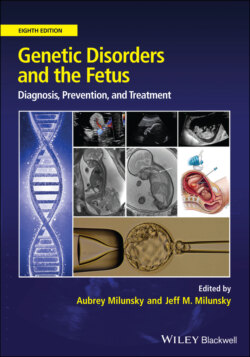Читать книгу Genetic Disorders and the Fetus - Группа авторов - Страница 25
Empathy
ОглавлениеEmpathy embodies the ability to not only understand the perspectives and emotions of others but to communicate that understanding.216, 217 Much more than the communication of risk figures for a particular disorder is required in the genetic counseling process. Warmth, care, sympathy, understanding, and insight into the human condition are necessary for effective communication. The difficulty of assimilating information and making rational decisions in the face of anxiety218 should be recognized and vocalized. Empathy and sensitivity enable the counselor to anticipate and respond to unspoken fears and questions, and are qualities that make the counseling experience most beneficial and valuable to the counselees.
For example, a couple may have been trying to conceive for 10 years and, having finally succeeded, may be confronted by a callous physician who is impatient about their concerns regarding amniocentesis and elective abortion. Another couple may have lost their only child to a metabolic genetic disease and may be seeking counseling to explore the possibilities for prenatal diagnosis in a subsequent pregnancy or even treatment following prenatal diagnosis, as in the case of galactosemia. They may have in mind past problems encountered in prenatal diagnosis or may be aware of the uncertain outcome of treatment. Or worse still, after a long history of infertility, pregnancy is achieved only to find that the fetus has aneuploidy.
Sensitivity and awareness of the plight of prospective parents are critical prerequisites and include the need to recognize and address the usually unspoken fears and anxieties. They may have had a previous affected child with physical/mental deficits and experienced stigmatizing encounters, including intrusive inquiries, staring and pointing, devaluing remarks and social withdrawal.219
Beyond the qualifications and factual knowledge of the counselor is the person who is key to successful and effective counseling. A compassionate attitude, body language, warmth, manners, dress, tone of voice, and personality are facets that seriously influence the credibility and acceptance of the counseling offered. Curiously, counselors rarely realize during their counseling session that they are simultaneously being assessed. Patients assess the apparent knowledge and credibility of the counselor, seek and are encouraged by evidence of experience, and consider the information provided in light of the counselor's attitude, body language, and other nonverbal characteristics. Staring at a computer screen while counseling conveys deep insensitivity and engenders no trust.
Essential prerequisites for the empathetic genetic counselor include the following:
Acknowledge the burden and empathize about the sadness or loss (e.g. a previous child; recurrent miscarriage; a deceased affected parent; a patient who has experienced mastectomy and chemotherapy for breast cancer with daughters at risk).
Vocalize the realization of the psychologic pain and distress the person or couple has experienced (e.g. recurrent pregnancy loss followed by multiple in vitro fertilization (IVF) efforts and subsequently a successful pregnancy with a fetal defect).
Acknowledge the coping that has been necessary, including the stress a couple might have to endure, despite sometimes conflicting feelings.
Recognize (and explain) psychologic difficulties in decision making when faced with a prenatal diagnosis of the same disorder affecting one parent (discussion of self‐extinction, self‐image, and issues of guilt and survival).
Fulfill the patient's need for hope and support and actively avoid any thoughtless comments172 that may erode these fundamental prerequisites. Well‐intentioned statements are frequently perceived in a very different way.206
It is self‐evident that empathy would engender greater patient satisfaction and may well be correlated with clinical competence.220
